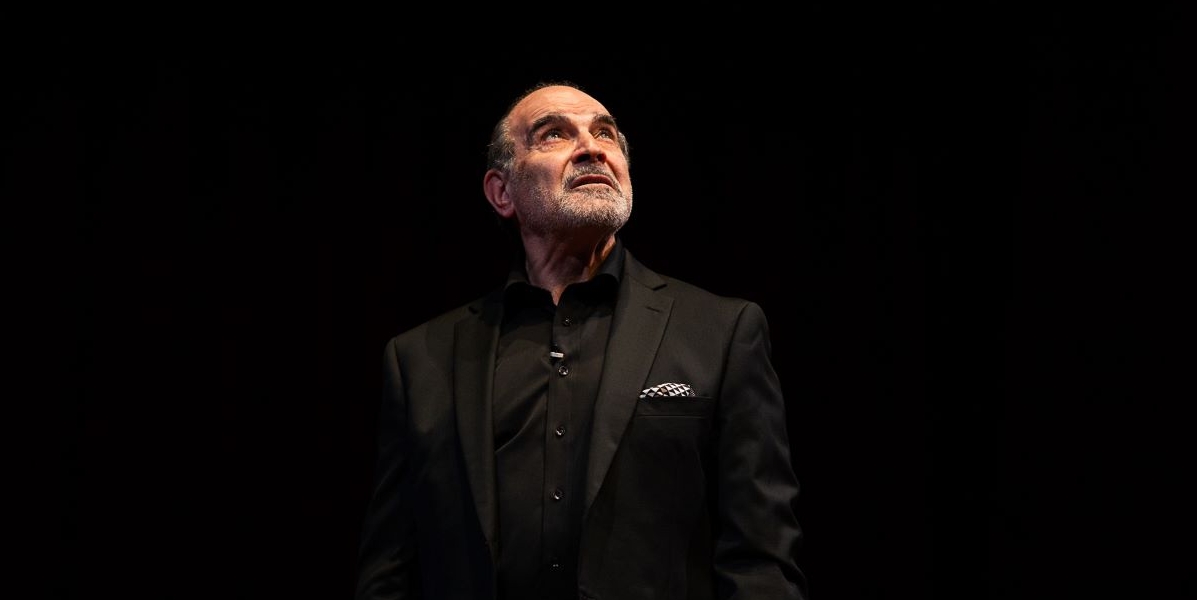It is a rare occurrence to be able to see a great actor’s one man show. We were privileged to see Sir Ian McKellan’s a few years ago and an equal privilege to see Sir David Suchet, aged 76 and on top form.
Suchet said: “Following the success of my one man show in the West End and on Tour last year, and in the light of the 100% cut in Arts Council funding which Hampstead Theatre is having to navigate, I wanted to show my support by bringing my show to this wonderful intimate theatre. I was last on stage at Hampstead Theatre in 1987 in Separation, directed by Mike Attenborough, so I think it’s about time!”
How lucky we are that we have an opportunity to see his show. We all know Suchet for his 25-year portrayal Poirot, and his many theatre successes, his favourite being Joe Keller in All My Sons. Astonishingly, over a billion people have seen some of the 70 Poirot episodes he made in those 25 years; there is an episode playing somewhere in the world every moment of every day!
Suchet and his old friend, Geoffrey Wansell (co-author of Suchet’s biography) as interviewer, sit on comfy armchairs on the bare stage as Suchet reminisces on his life, from his first stage performance as an oyster, via the National Youth Theatre and Lamda, to the RSC and the glittering career which followed.
Suchet is a great storyteller with many stories to tell.
In the first half, he discusses his family. Then, as a junior actor at the RSC in Stratford, he had an inauspicious start by ruining Tybalt’s grand entrance by falling flat on his face, breaking his sword which was needed for a swordfight. He got his lucky break when Bernard Lloyd for whom he was understudy, fell ill and he had to take over. This was instrumental to his great success at RSC.
Of course, he has stories about Poirot. Many people eve think he really is Poirot and are concerned when they see him, that there has been a murder! He shows the famous walking cane and even the original framed Poirot moustache.
In the second half, he changes to all black, and becomes a different person: the great actor. He begins with a speech as Salieri from Amadeus.
The marvellous director John Barton at RSC gave him a ‘highway code’ on Shakespeare, and he passes this master class on to the audience. He explains how he approaches a character. He explains that if the play is a jigsaw puzzle, he takes his character out of the puzzle, and happens without that character, Iago, for example. Without Iago, Otello and Desdemona would be happily married and settled in Cyprus for years. With Iago in the mix, it is a different outcome, and that is how he constructs his character. His insights into Shylock are fascinating.
He explains how he arrived at the Poirot voice, and the Poirot walk. He is meticulous in his detail.
However, it is his true voice as a great actor, especially in his Shakespeare extracts, which is thrilling and worth the price of the ticket alone. We left wanting more.
This entertaining evening is a unique treat, and as it is unlikely to be seen again, for Poirot fans, theatre lovers, and Suchet admirers, this is not to be missed.

